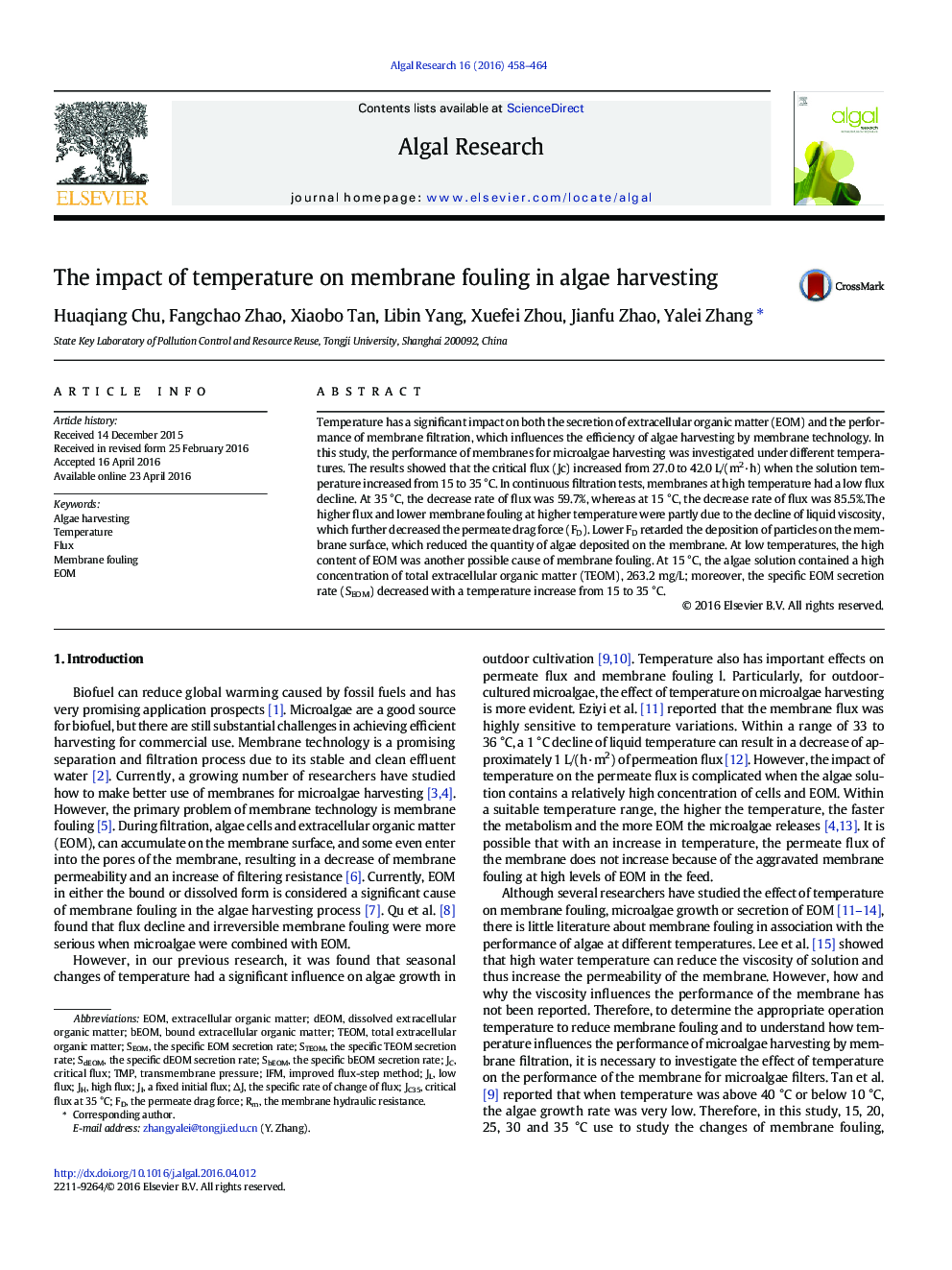| Article ID | Journal | Published Year | Pages | File Type |
|---|---|---|---|---|
| 8087117 | Algal Research | 2016 | 7 Pages |
Abstract
Temperature has a significant impact on both the secretion of extracellular organic matter (EOM) and the performance of membrane filtration, which influences the efficiency of algae harvesting by membrane technology. In this study, the performance of membranes for microalgae harvesting was investigated under different temperatures. The results showed that the critical flux (Jc) increased from 27.0 to 42.0 L/(m2·h) when the solution temperature increased from 15 to 35 °C. In continuous filtration tests, membranes at high temperature had a low flux decline. At 35 °C, the decrease rate of flux was 59.7%, whereas at 15 °C, the decrease rate of flux was 85.5%.The higher flux and lower membrane fouling at higher temperature were partly due to the decline of liquid viscosity, which further decreased the permeate drag force (FD). Lower FD retarded the deposition of particles on the membrane surface, which reduced the quantity of algae deposited on the membrane. At low temperatures, the high content of EOM was another possible cause of membrane fouling. At 15 °C, the algae solution contained a high concentration of total extracellular organic matter (TEOM), 263.2 mg/L; moreover, the specific EOM secretion rate (SEOM) decreased with a temperature increase from 15 to 35 °C.
Keywords
Related Topics
Physical Sciences and Engineering
Energy
Renewable Energy, Sustainability and the Environment
Authors
Huaqiang Chu, Fangchao Zhao, Xiaobo Tan, Libin Yang, Xuefei Zhou, Jianfu Zhao, Yalei Zhang,
